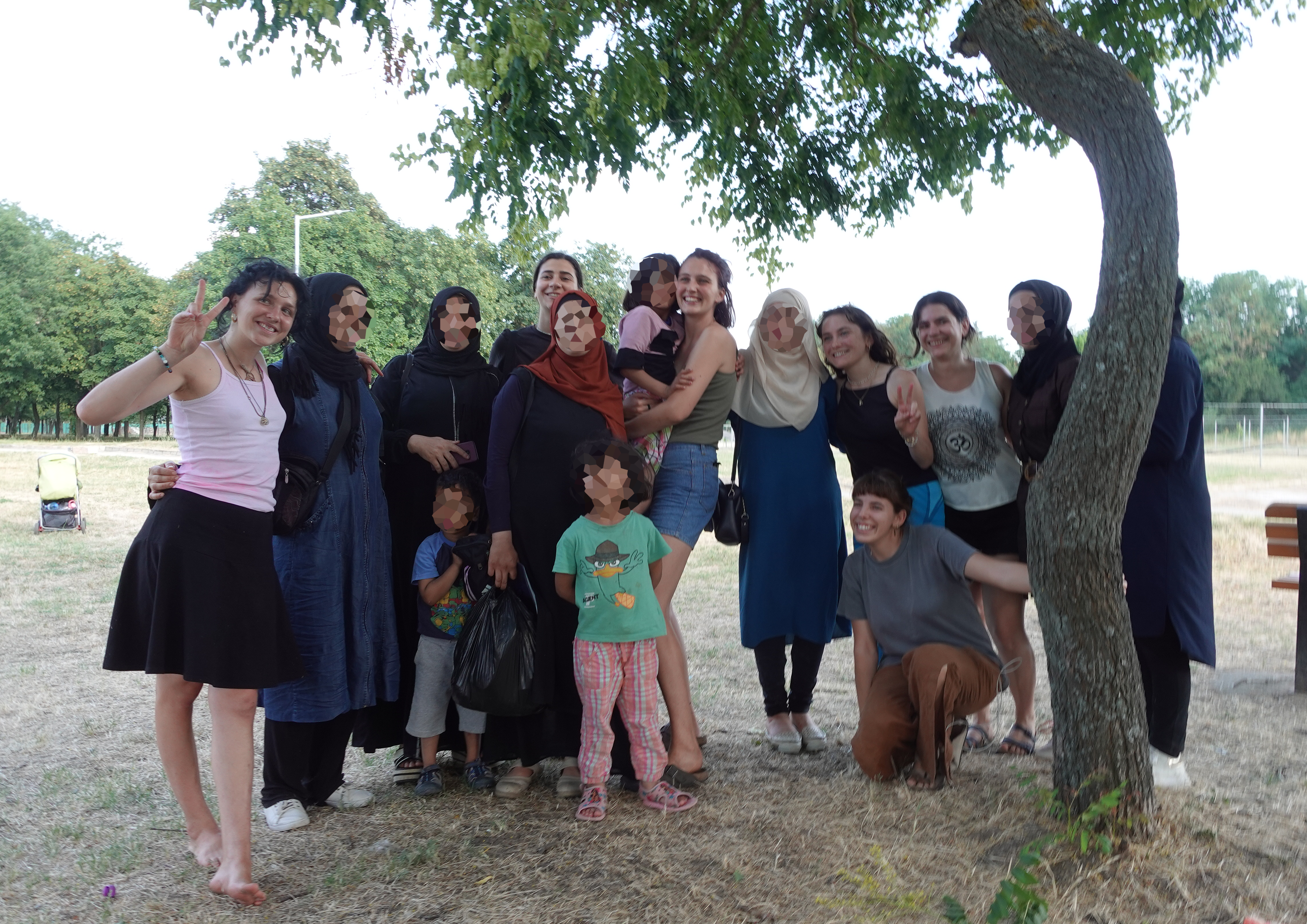
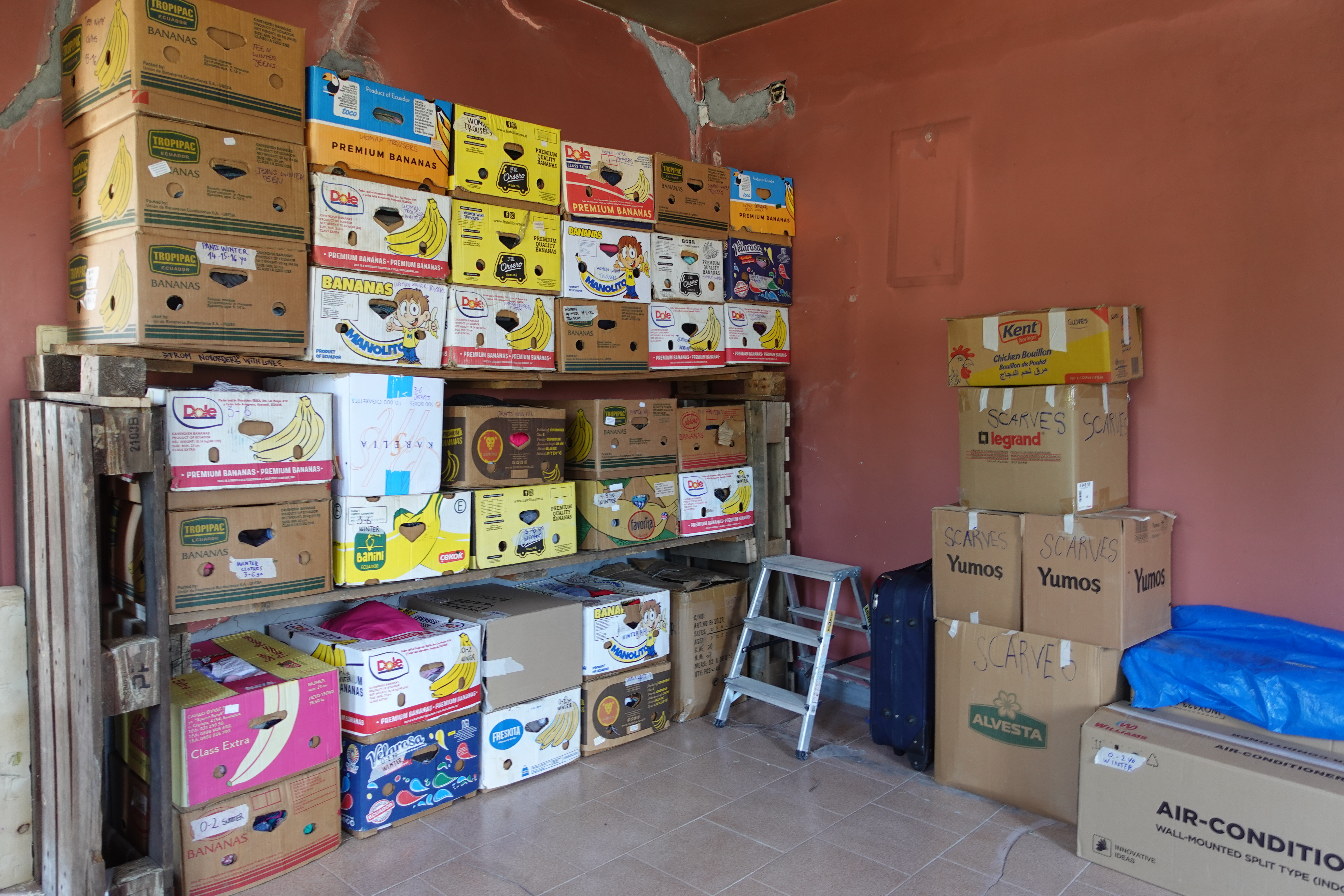
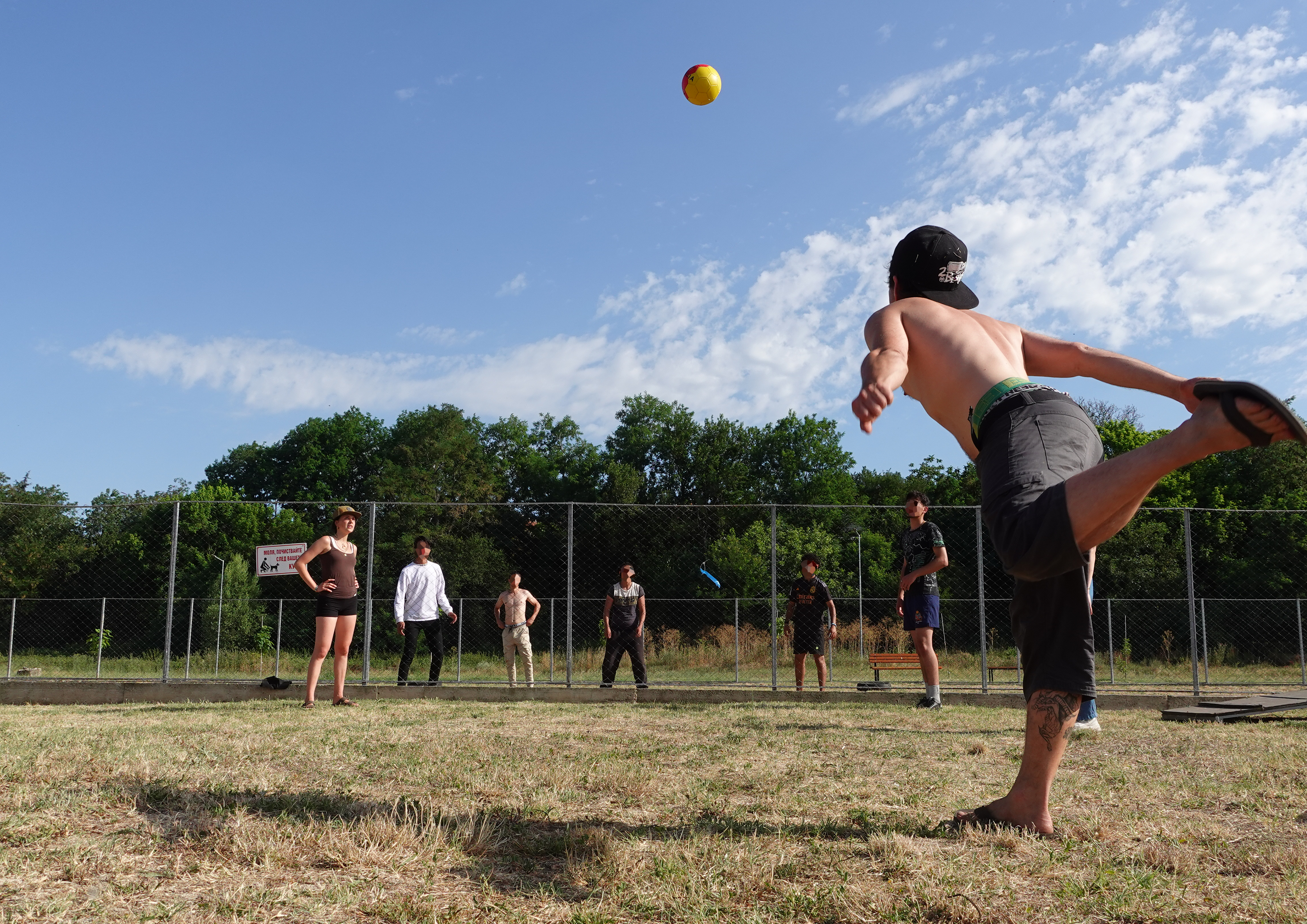
Bulgaria
( (We arrive in Harmanli at the end of June, with the goal of meeting, getting to know, and supporting the volunteers of No Name Kitchen, one of the few associations present on-site. The team, consisting of five people, in this case, all girls between the ages of 19 and 24, mainly focuses on creating a “safe space” several times a week in public areas, where the people living in the camp can gather and experience moments of light-heartedness without barriers or prejudices. In addition to this, they also support these people with clothing, which they often lack, just as they do in Bihac.
We participated in several “distros” with them during our stay, which allowed us both to better understand the organization of their group and to get to know some of the residents of the Harmanli camp. We also helped reorganize the warehouse where they store the materials they receive from all over Europe.
The girls introduced us to Hamid, a cultural mediator who works with the association “Mission Wings.” Originally from Iran and a former journalist, he arrived in Bulgaria in 2018, just like the people he is now helping. He provided us with a clearer and more detailed view of the legal situation in the country. The reality of things here is unknown to the general public and deserves broader media coverage. In his own words:
“We are alone here in Harmanli.”
Izmir (Turkey) 4/07/24
Bosnia
In Zagreb, we got in touch with IPSIA, an NGO that operates in Bihac, Bosnia, close to the border with Croatia. Their main goal is to create a space in two different camps (one composed of families and unaccompanied children, the other of single men) that offers people the opportunity to play, draw, and socialize among themselves and with volunteers. Once we arrived, we started working directly in the Lipa camp, where about 200 people were staying at the time. After everything we had seen in other camps in France and Italy, it was a shock to see how a legal camp operates. Leaving aside our personal views on the matter, it was very useful for us to engage with this reality. It gave us ample time to understand how the border works and to speak with many people on the move. The stories they told us about crossing the border and the violence from the Croatian police were horrifying and unreal. They also mentioned that, as much as they can’t wait to move on and reach their final destinations, they feel safer in the camp than in any of the places they had been before. The biggest problem with the camp is that it is very far from any town, and to move back and forth, they have to take a taxi, which is not an option for some due to a lack of money. Therefore, most are forced to stay here for weeks, months, and in some cases, more than a year.
While we were in Bihac, we met the volunteers from No Name Kitchen, who operate around Lipa and other areas. Their main objectives are:
- To distribute clothing and food, which is often necessary because not enough is distributed in the legal camp. At other times, they provide supplies to people who need them for their journey to cross the border.
- To create safe spaces called “Distros” where people can come to relax, talk, play, and share stories with one another, providing a respite from the usual environment of the legal camp.
The volunteers, composed of young people from different countries, invited us to their warehouse to see how they operate before going out and meeting people on the move. Most of their work involves rearranging donations such as clothes and dry food to make packets for individuals or groups in need. Sometimes, these packets also include small first aid kits to help them in case of injuries on the road to the border.
Our next stop was Sarajevo, where we were given the contact of a woman named Ines, who is part of a group called COMPASS 071. This group, formed mainly by Bosnian volunteers, has opened a space in the city where people can enjoy a cup of tea, relax, socialize, shower, read, and, perhaps most importantly, enter the free shop where they can choose clothing they like. This space was created because there is no such facility in the Sarajevo camp, and the volunteers from COMPASS believed that people on the move needed a place where they could feel humanized.
Izmir (Turkey) 4/07/24
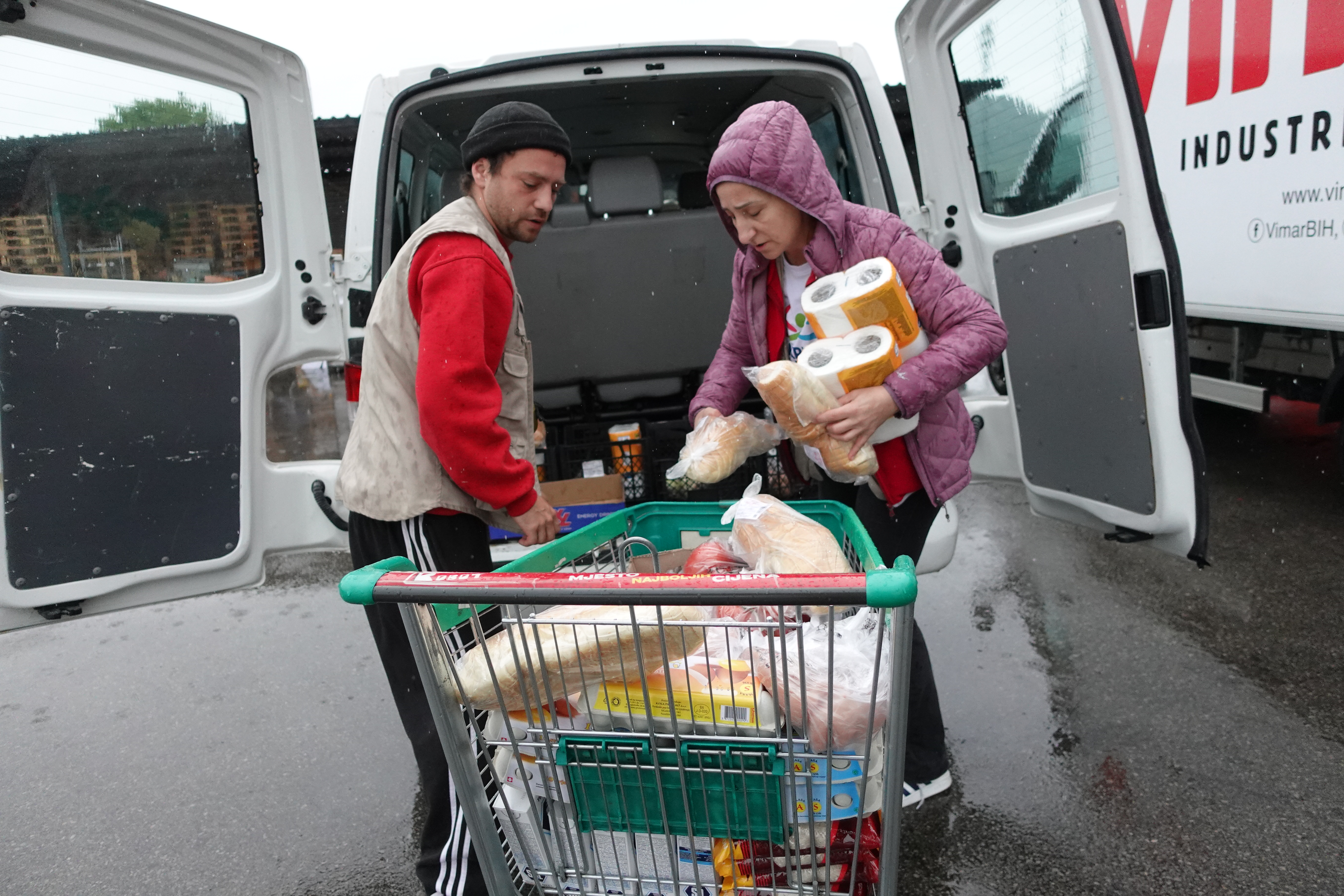
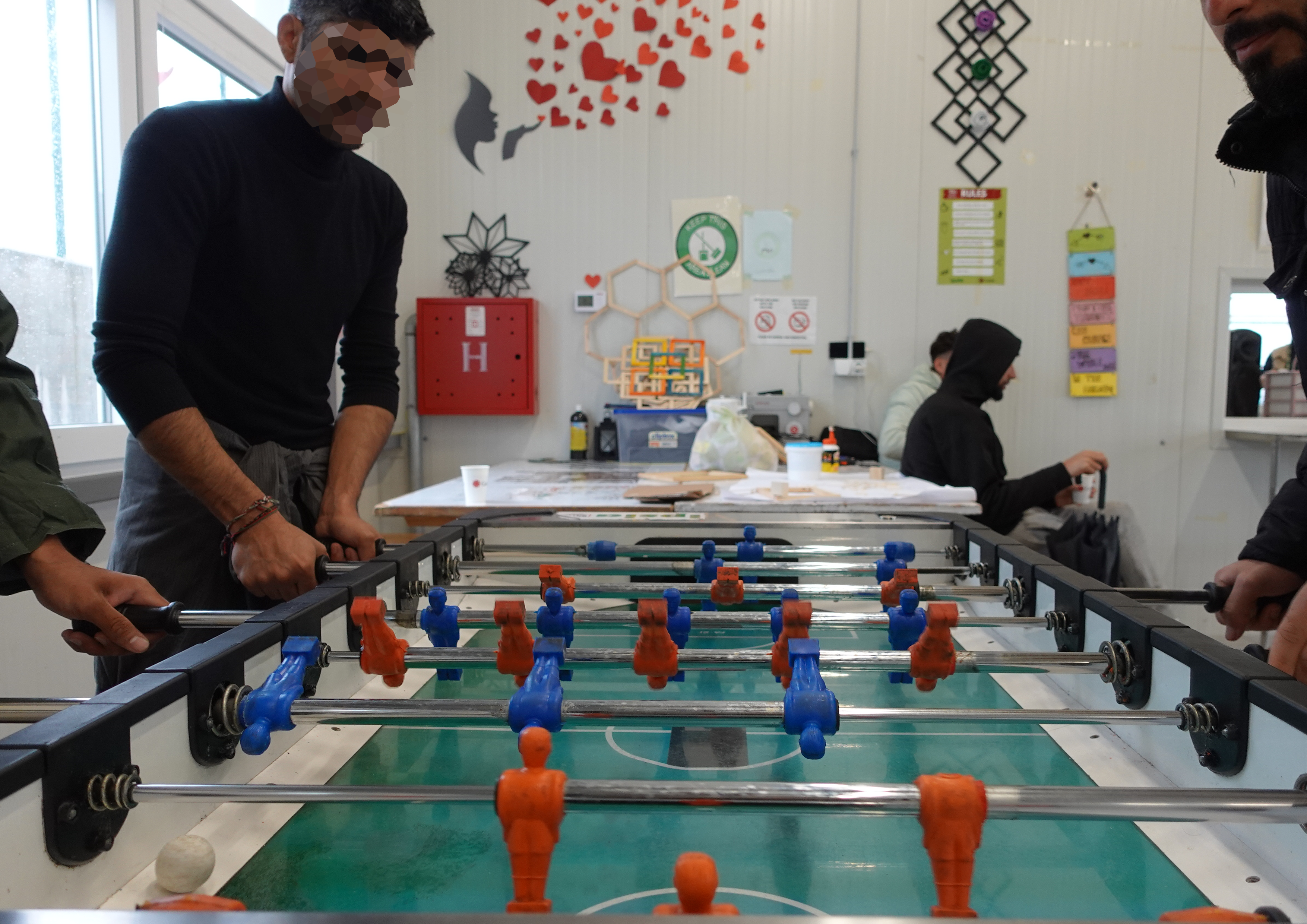
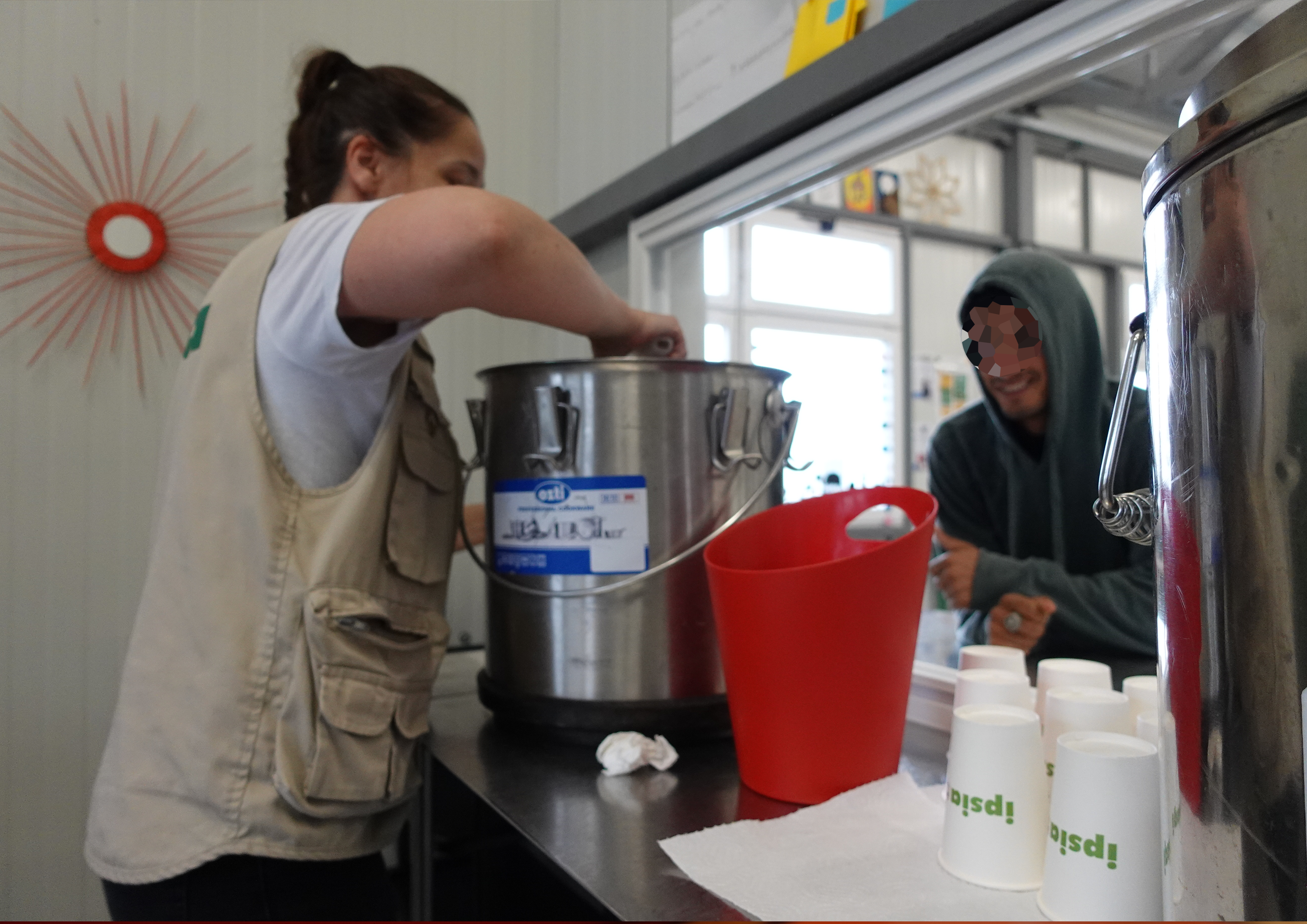
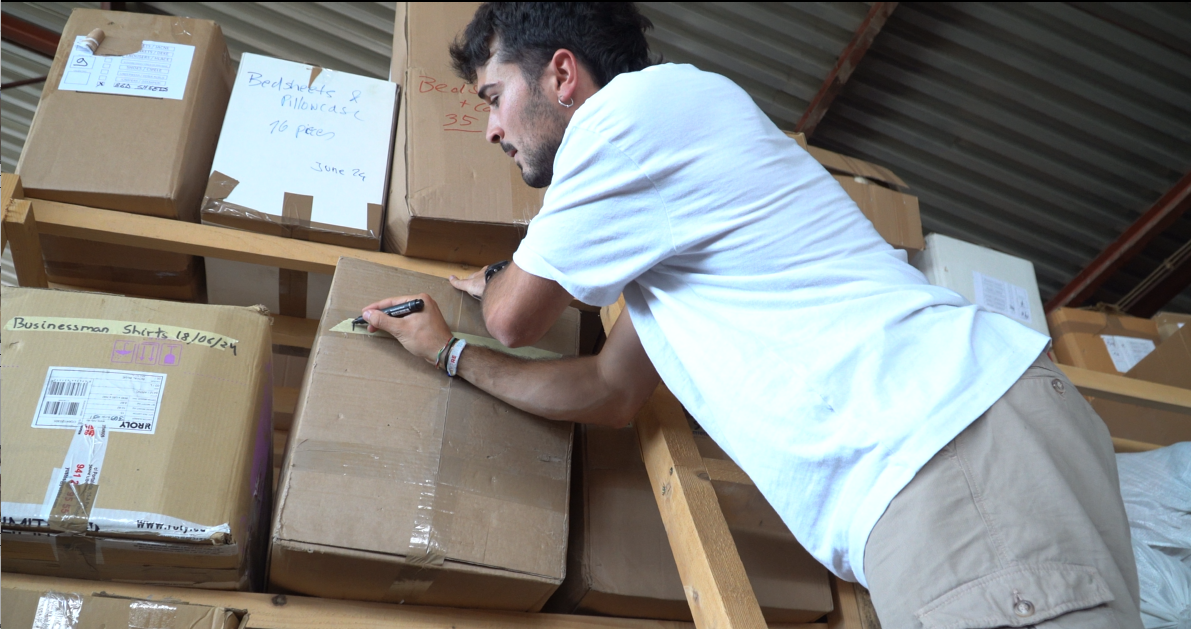
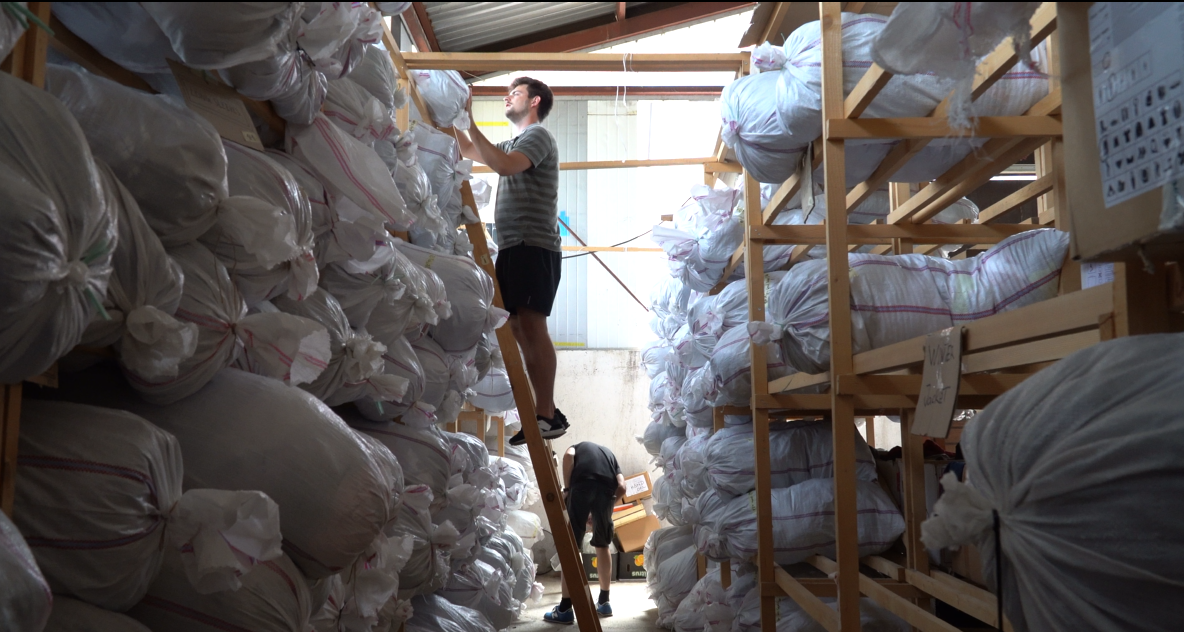
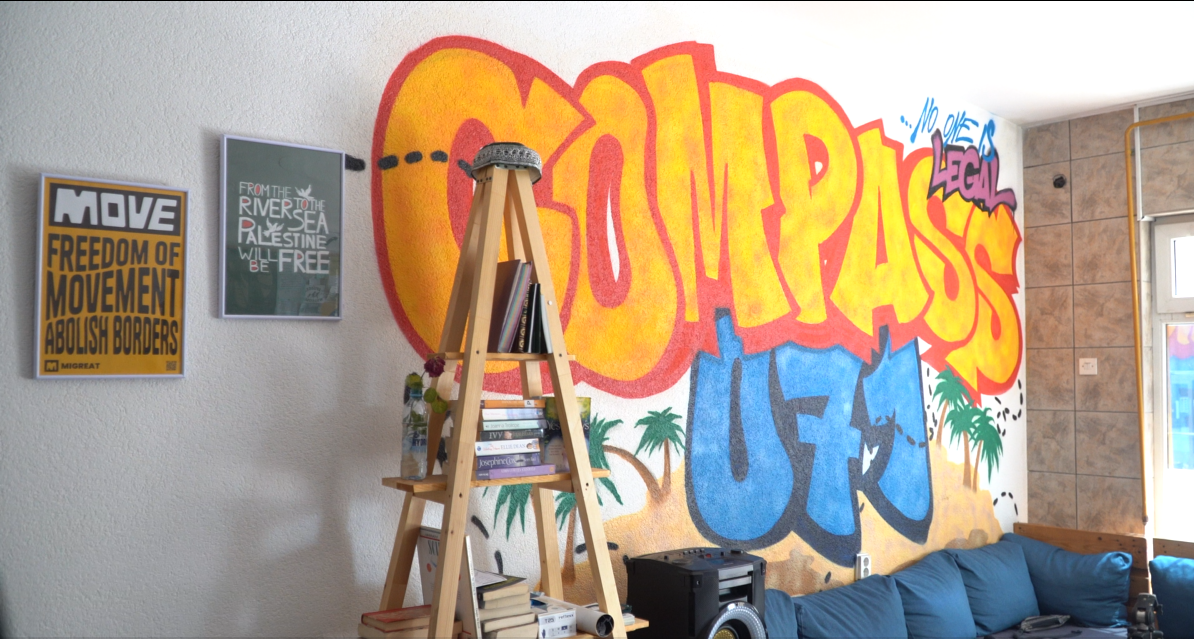
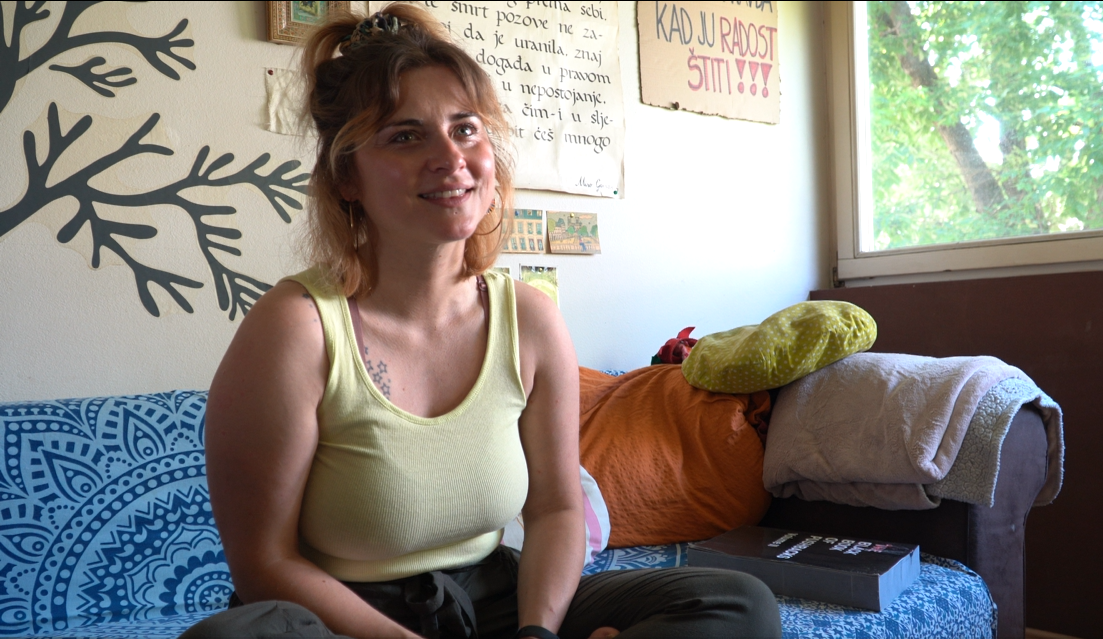
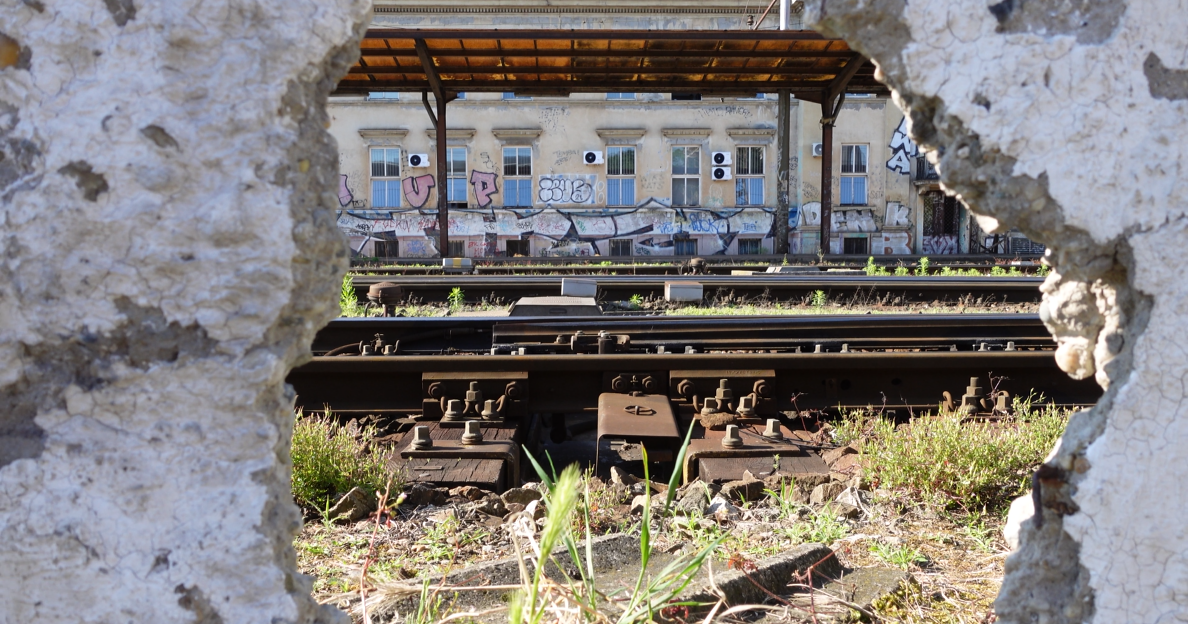
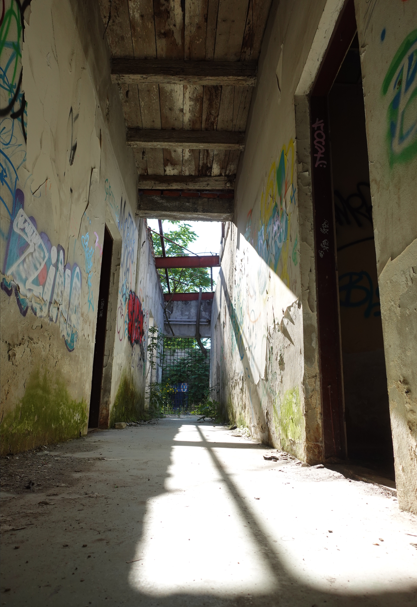
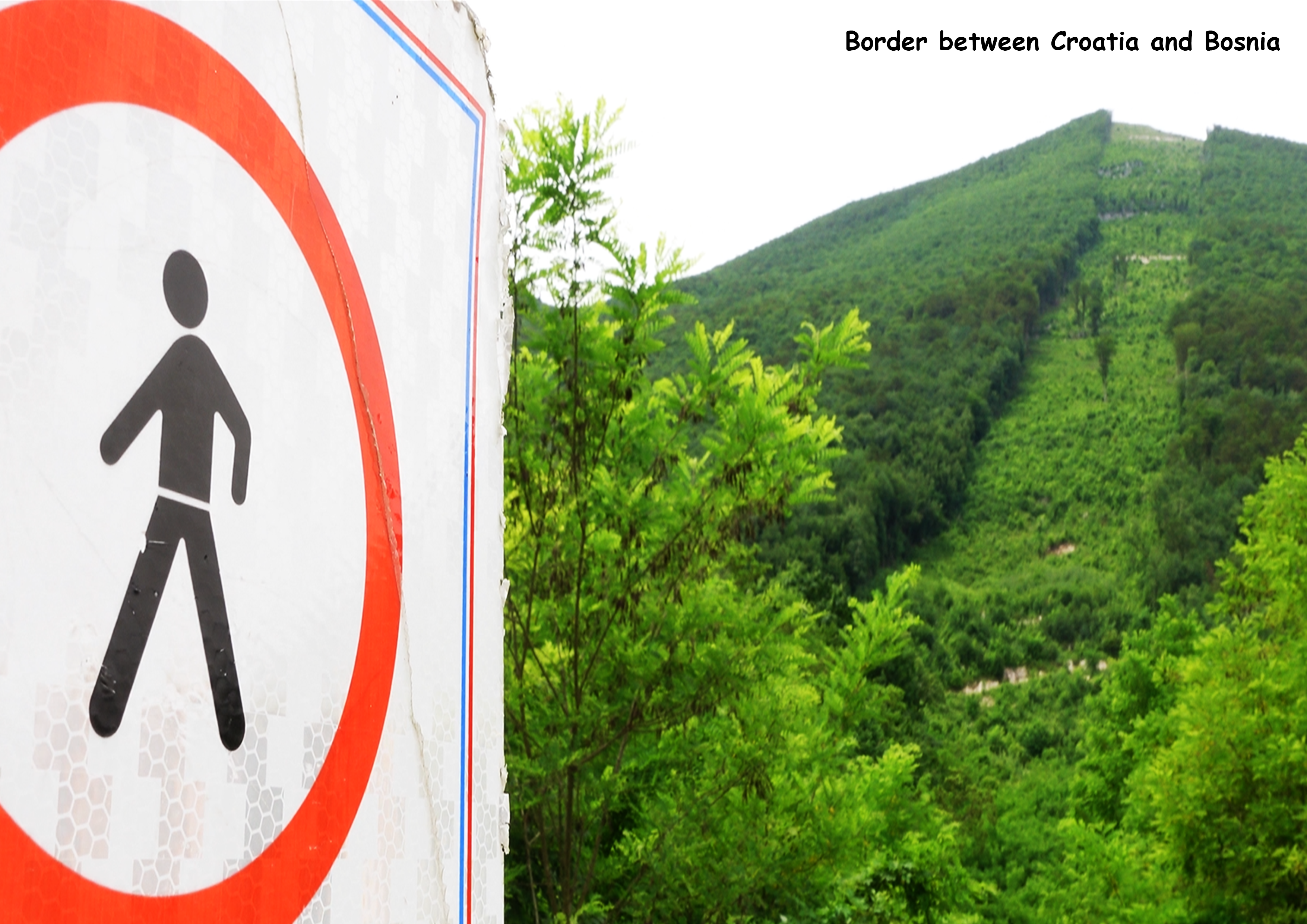
Croatia
During our stay in Zagreb, we managed to meet and interview various people from different groups who give solidarity to people on the move, such as ERIM, Are You Syrious, and the Centre for Peace Studies. One issue that was frequently mentioned and has been a major concern for over eight years is “Illegal Pushbacks.” This was described to us as a very violent practice where thousands of people have been pushed back to either Bosnia and Herzegovina or Serbia over the years. The intent of this illegal maneuver is to deter people on the move from entering Europe. Sometimes, if people are “lucky,” this results in the police robbing them of their belongings, phones, and money before forcing them back to the country they came from. However, at other times, force is used, resulting in physical damage or even death. It is disgraceful to know that this happens at the entrance to Europe. While talking to Antonija from “CPS,” she showed us two very large books called “The Black Book of Push-backs,” which contain testimonies not only from the borders with Croatia but from all around the Balkan Route.
If you are interested in reading these testimonies, you can download the PDF or read them directly on the website: www.borderviolence.eu
After this, we made our way towards Bihać, which is in Bosnia, very close to the border. Just before crossing, we visited a tourist attraction, “Željava,” an ex-Yugoslavian underground airbase that had been abandoned after the war and is now visible to anyone who wants to visit. Using this as an excuse, we managed to walk all the way to the border with Bosnia, where we could finally take a look at the infamous “empty line,” where trees had been cut down to see if any people on the move were crossing between the two nations.
Bihac (Bosnia) 15/06/24
Update n.3
Since our last update a lot has changed. Our original path that we had planned has been modified due to the continous changes of the migrant route and because since then we have been in touch with many more groups and individuals whom give solidarity to people on the move. At the moment we are now in Zagreb (Croatia) where we will stay for about 10 days with the aim of meeting new groups, see how we can help and also to start documenting stories and interviewing both solidarity workers and people on the move. Day by day we will understand our next move , but the plan is to stay the whole month of June around various countries of the Balkans.
31/05/24 Zagreb
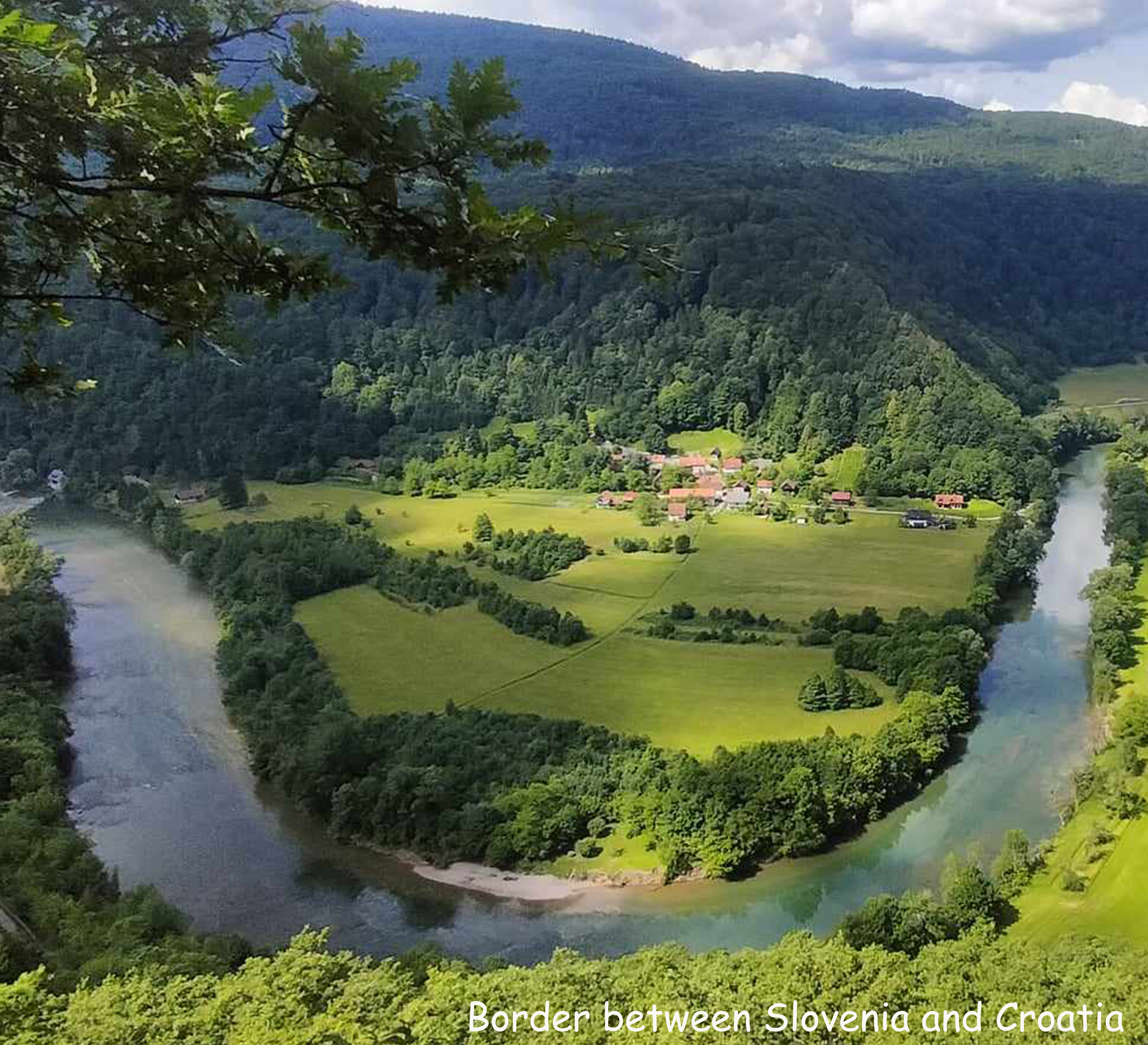
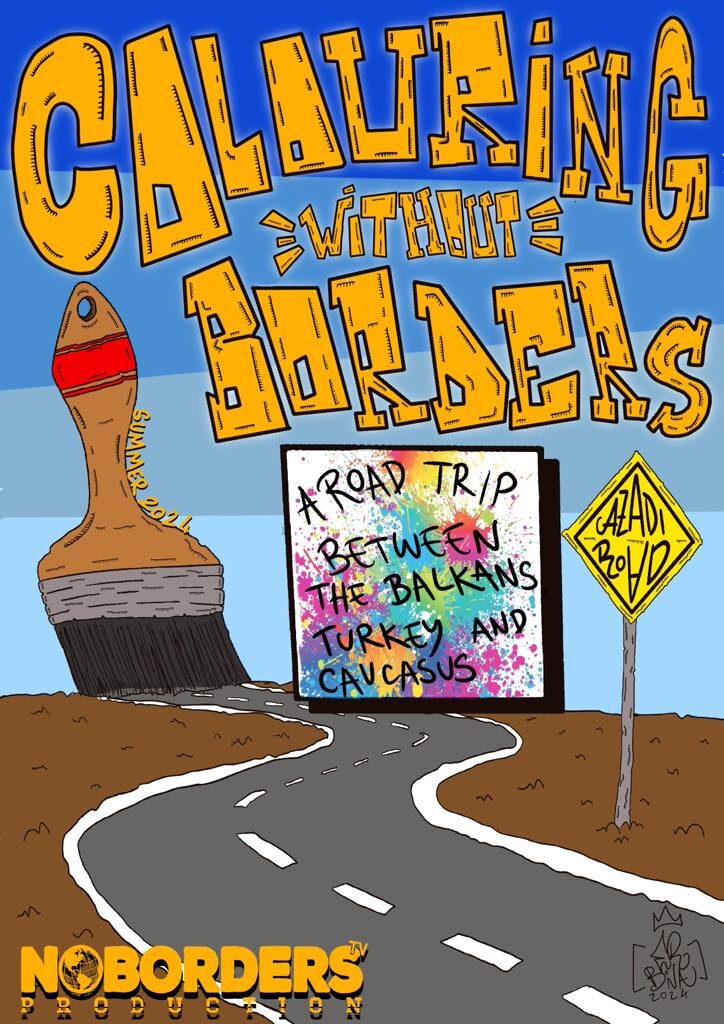
Colouring without Borders
Last year we managed to complete our second colouring fanzine that was created thanks to the help of 15 artists that made for us some unique drawings giving them only the theme “borders”. Since then we have printed some that have been used and given out in both Dunkirk and Trieste and have also been distributed for a free price at our stands in the various festivals and events. Now that we have reached the beginning of our trip through the balkans we would like to announce the project “Colouring without Borders” that will go hand in hand with “The Azadi Road”. Thanks to various donations of colours and artistic equipment, we want to try and recreate what we had managed to do in Africa with the projects “Colours for Africa” and “Mundo Sabi”, but this time passing through various countries along the Balkans, Turkey and Caucasus. We will try to work with people on the move and we will also improvise artistic workshops in small villages along the route.
31/05/24 Zagreb
Trieste (The Silos)
In November 2023, we visited Trieste for the first time to understand the situation there and figure out how we could be useful. We organized a collection of useful materials, raised some money, and by the end of February, we decided to return to provide more concrete support.
Trieste, known as “the gateway to Europe,” is where people, mainly from Afghanistan, Pakistan, and Bangladesh, arriving from the Balkan route, feel “safe” after overcoming the most difficult part: thousands of kilometers, mostly traveled on foot, in freezing conditions, facing police violence and repression. Thousands of migrants pass through Trieste, some of whom stop while waiting for political asylum procedures, which can take years or, in the worst case, may never happen.
The place where they usually stop, either momentarily or for longer periods during the bureaucratic process, is called the “Silos”: a dilapidated structure with a very fragile roof, countless leaks, no water or bathrooms, and infested with mice that bite people at night, making it impossible to store food. Every time it rains, all personal belongings get wet unless they are lucky enough to have a good tent. During our stay on-site, we cleaned up the place with the people who live there, covered makeshift kitchens with plastic sheets, protected at least some of the common spaces from the rain and wind, but above all, we formed new friendships and relationships and together rebuilt a bit of that sense of humanity that is often crucial for people on the move to feel welcome. We promised them and ourselves that we would return soon!
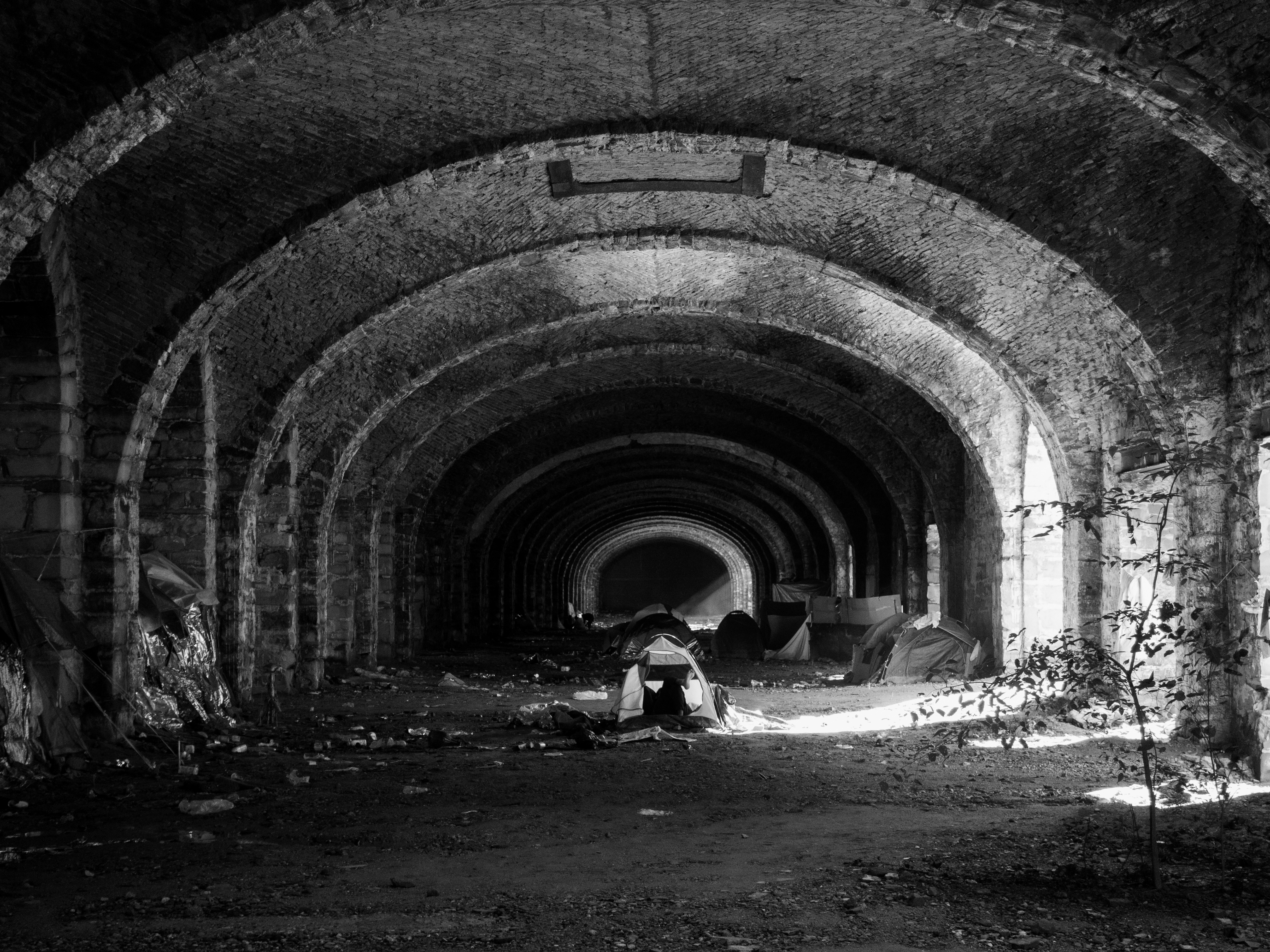
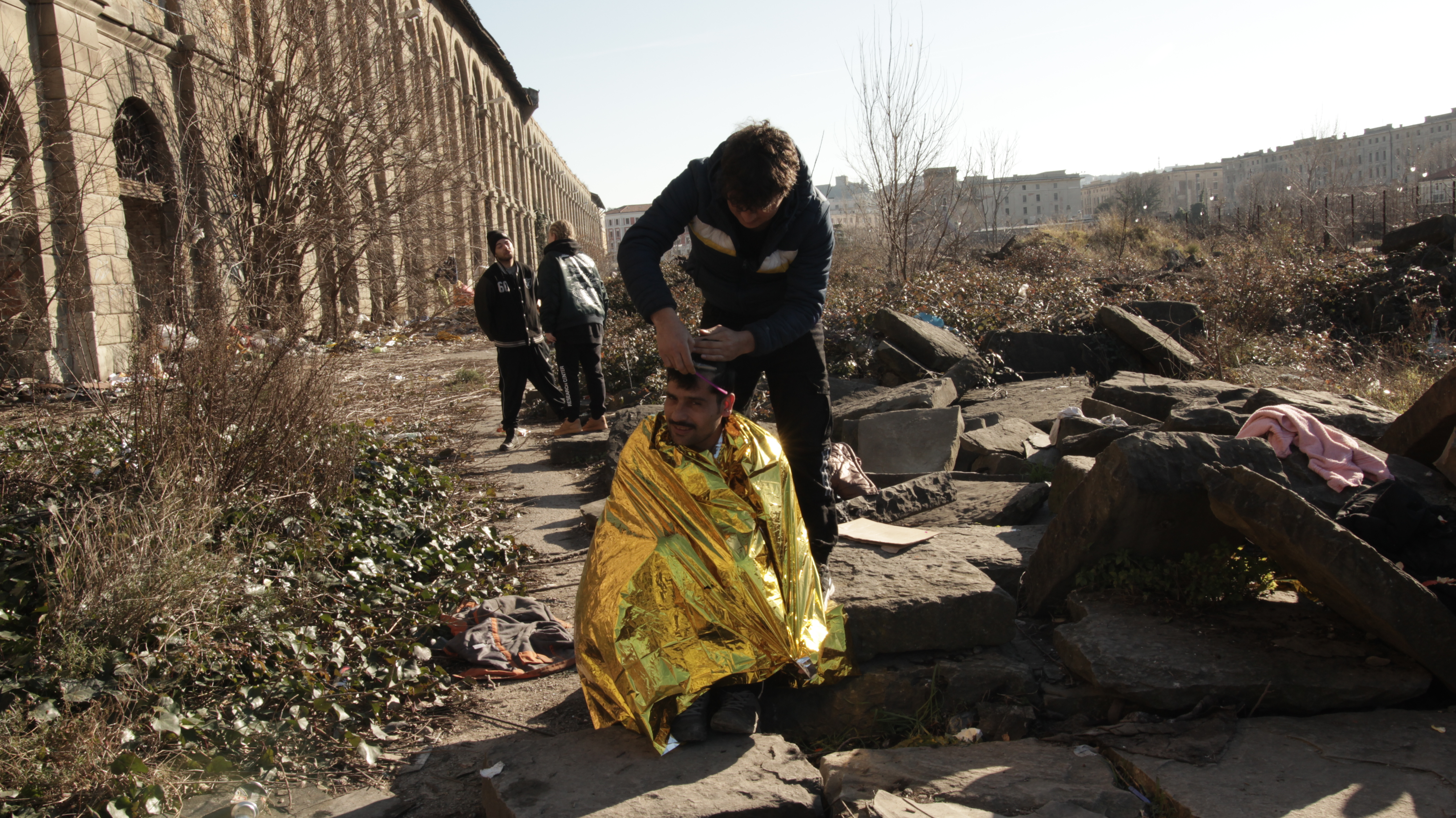
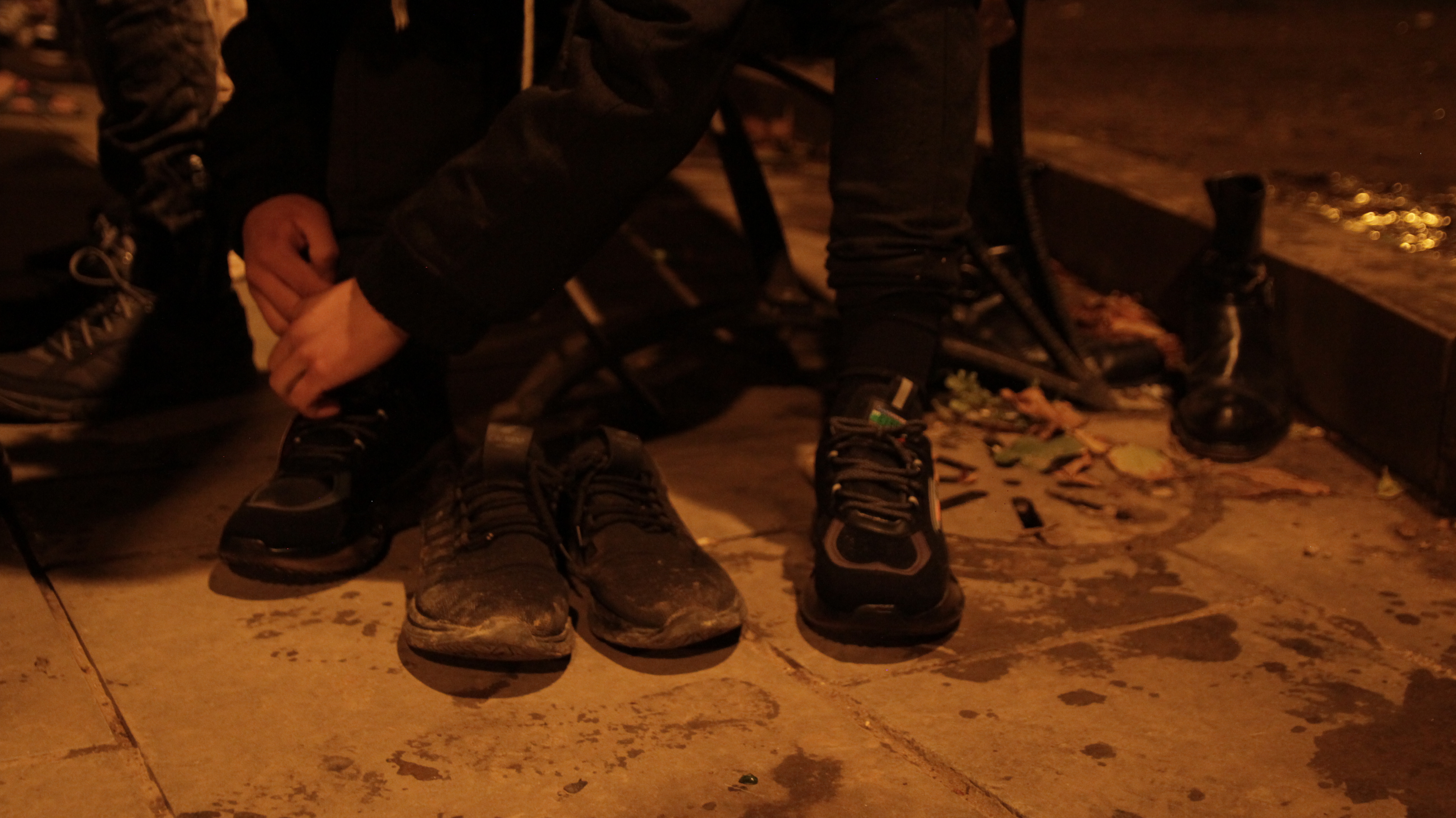

Help 4 Dunkerque 2023
From November 9th to December 15th, we supported our friends at “Help 4 Dunkerque” in launching their four-month-long project to assist displaced individuals in the Grand Synthe area. Throughout this period, we initiated various essential activities aimed at aiding people, including providing hot drinks in the mornings, serving meals, setting up phone charging stations, establishing a barber space, and endeavoring to fulfill diverse needs such as clothing, shoes, blankets, tents, and more.
This collaborative effort involved Art Bro’s and numerous other volunteers who, like us, rally every winter to champion this noble cause. After a hiatus of three years, we are elated to have once again contributed to this remarkable project. Our heartfelt appreciation extends to everyone involved, from the tireless organizers who meticulously plan year-round to prepare for the winter season, to those who facilitate collection points, to the dedicated volunteers and generous donors who support this vital endeavor.
Together, we are all “Help 4 Dunkerque”. Merci!
For further insights, please visit our photo and video gallery, where you can explore the rich content we have documented during our time there, including a poignant reportage featuring our dear friend Pierre, currently on a hunger strike to protest the harsh treatment of displaced individuals by the French government, underscoring their relentless struggle for a better future.
Update n° 2

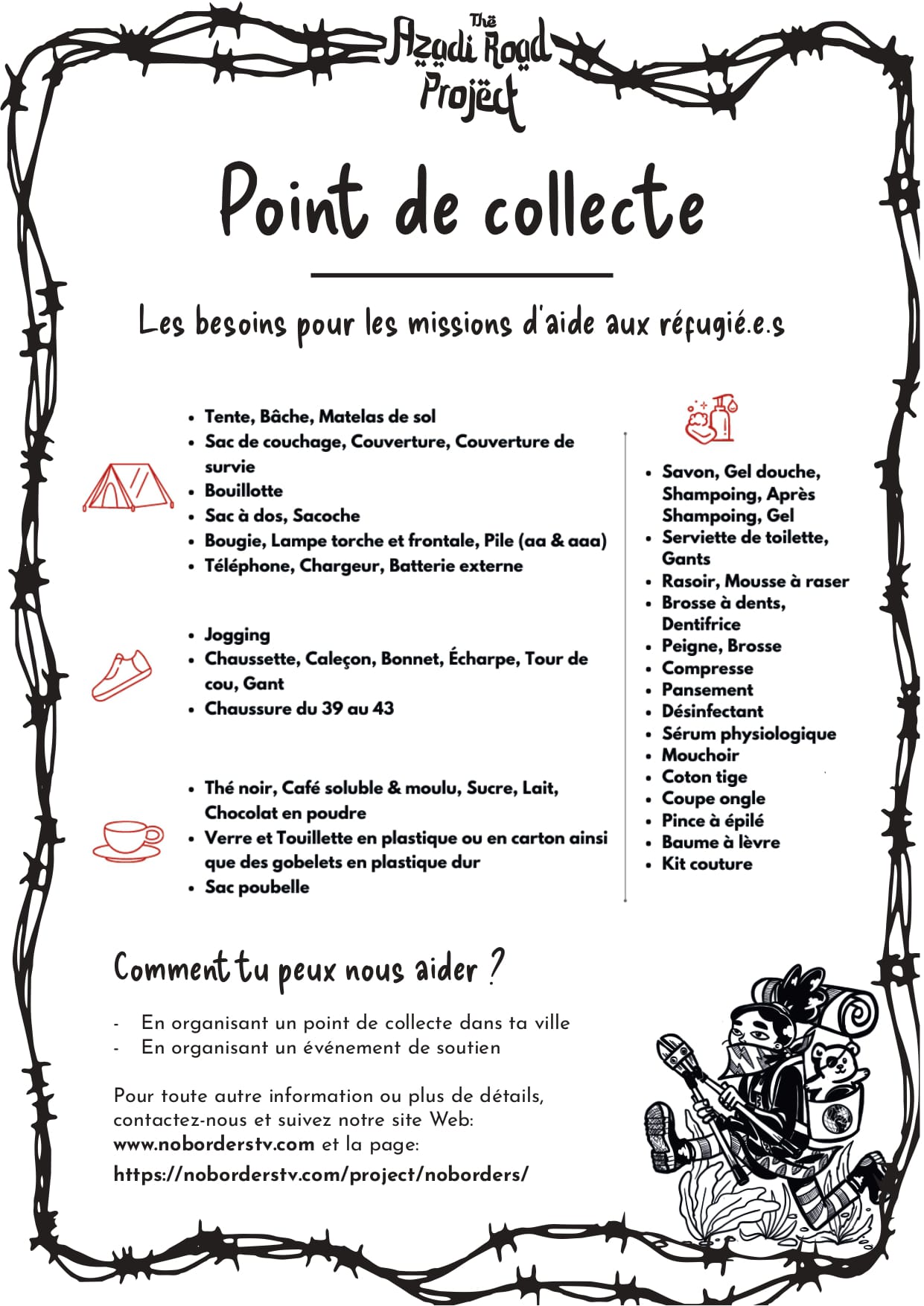
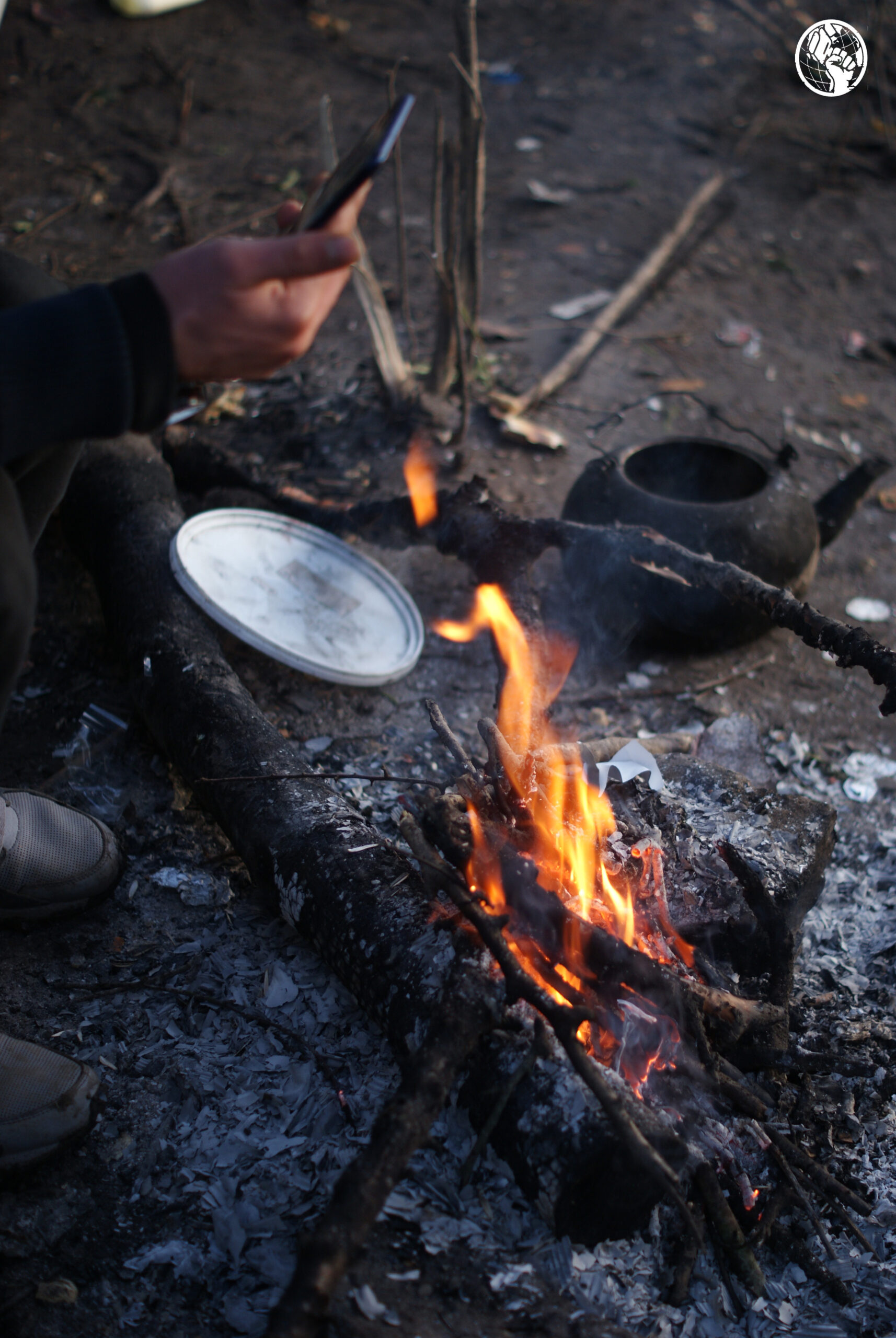

Update n°1
Between the end of 2023 and beginning 2024 we will start our project “The Azadi Road Project” that is set to help various groups, organisations and associations that give aid actively to refugees all around Europe.
We are in touch with groups in the U.K such as “Hertz for Refugees” whom collects tents and camping equipment at the end of various festivals to then transport everything to the camps at the north of France, in Dunkirk we are in touch with “Help4Dunkerque”, “MRS” and “Roots” whom actively give support to people in the “illegal camps”. Our support will then expand to groups in Italy, Poland, Greece and different countries depending on the migrant course that will be most popular in that period of time. Our support will be both physical and/or monetary depending on the necessities or each country and group.
The money that we will collect from now until next year will be used by either donating it directly to a group, by paying for transport of goods to camps, or by using them directly on these spaces for any necessity.
For any other information follow our website www.noborderstv.com and the page https://noborderstv.com/project/noborders/ you will see more updates about our next project and information about our previous ones.
